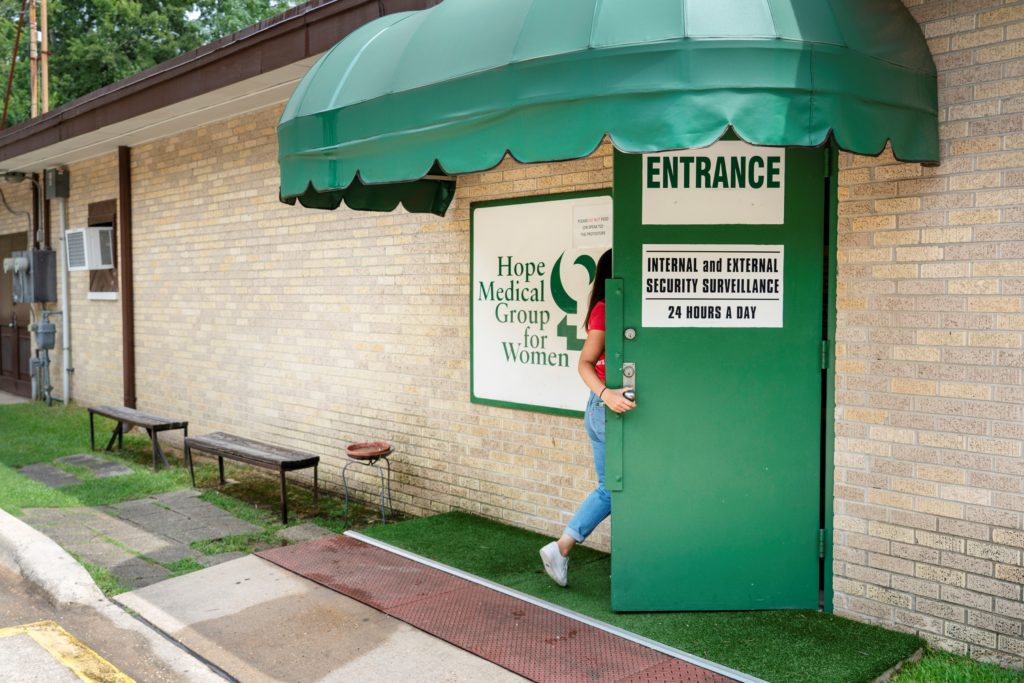Center and Partners Sue to Stop New Arizona Abortion Restrictions
Measures would ban abortion if there is indication of fetal diagnosis in the patient’s reason and grant new “personhood” rights for fetuses and embryos.

The Center for Reproductive Rights and its partners have filed a lawsuit today challenging two Arizona abortion restrictions. One would ban abortion if there is any indication that the patient’s reason is a fetal diagnosis; the other would grant “personhood” rights to fetuses, embryos, and fertilized eggs in a manner that threatens to criminalize essential medical care for pregnant patients and other actions by pregnant people.
The lawsuit, filed in federal district court in Arizona, aims to secure a preliminary injunction before the measures take effect on September 29, 2021. The plaintiffs in the suit—two Arizona physicians, the Arizona Medical Association, National Council of Jewish Women Arizona, and the Arizona National Organization of Women—are being represented by the Center, the American Civil Liberties Union, and the ACLU of Arizona.
“Politicians should not get to decide what an acceptable reason is for seeking an abortion,” said Emily Nestler, Senior Counsel at the Center. “This law is an affront to our constitutional rights and our ability to make private decisions free from government intrusion.”
The law being challenged, S.B. 1457, adds a fetal diagnosis reason ban to Arizona’s existing sex and race reason bans enacted in 2011. The ban would target pregnant people already facing complex decisions regarding fetal genetic conditions, taking away their constitutional right to choose a pre-viability abortion. The law’s “personhood requirement” would anoint fetuses, embryos, and fertilized eggs with the same “rights and privileges” as “other persons” starting at the point of conception for purposes of all Arizona law. This sweeping change threatens both health care providers and pregnant women with criminal liability for a wide range of actions that could impact a pregnancy.
Numerous Restrictions Make Abortion Care Difficult to Access in Arizona
Arizona has several existing abortion restrictions that make it difficult for people to access abortion, including a mandatory 24-hour waiting period for people seeking abortion; a ban on the use of telemedicine for medication abortion services; and a law banning advanced practice clinicians like nurse practitioners from providing abortion care. If the U.S. Supreme Court overturns Roe v. Wade, Arizona and nearly half the states in the country are poised to ban abortion entirely. (See the Center’s “What if Roe fell?” abortion laws map here for more information on Arizona’s abortion restrictions.)
“These extreme restrictions are just the latest attempt by Arizona’s anti-abortion lawmakers to outlaw abortion care in their state,” said Nestler. “We will continue to fight for the people of Arizona and other states to ensure they can exercise their constitutional right to make decisions about their bodies and their futures.”
This fall, the U.S. Supreme Court will hear oral arguments in the Center’s case, Dobbs v. Jackson Women’s Health Organization. In the case, Mississippi has asked the Court to overturn Roe v. Wade and allow states to ban abortion before viability.
Read more:
Medical Experts and Civil Rights Groups File Lawsuit to Block New Arizona Abortion Ban, 08.17.21 (Press release)

